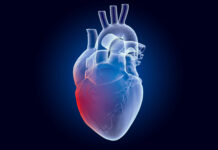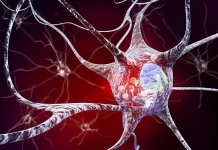Colorectal cancer, Endometrial cancer, Esophageal cancer, Breast cancer (post-menopausal), Kidney cancer, Ovarian cancer, Pancreatic cancer, and Stomach cancer.
Obesity is a complex condition and the exact mechanisms through which it may increase cancer risk are not fully understood. However, some potential explanations include an increase in levels of certain hormones, inflammation, and oxidative stress, which have all been linked to both obesity and cancer. Maintaining a healthy weight through a balanced diet and physical activity is an important part of reducing the risk of developing cancer and other chronic diseases.
Yes, maintaining a healthy weight through a balanced diet and physical activity is an essential part of reducing the risk of obesity and its related health problems, including cancer.
A balanced diet should include a variety of nutrient-dense foods, such as fruits, vegetables, whole grains, and lean proteins, and limit the intake of added sugars, saturated and trans fats, and excessive amounts of salt. In addition, it is essential to pay attention to portion sizes to help control calorie intake.
Physical activity is also a crucial component of maintaining a healthy weight and reducing the risk of cancer and other chronic diseases. Aim to get at least 30 minutes of moderate-intensity physical activity most days of the week. This can include activities such as brisk walking, cycling, or swimming. If you have been inactive for a while, it is important to start slowly and gradually increase the intensity and duration of your physical activity.
In addition to diet and physical activity, other healthy habits, such as avoiding tobacco and excessive alcohol consumption, can also help reduce the risk of cancer and other health problems associated with obesity.

Eat to Live!
Healthy eating is a way of consuming food that supports optimal health and well-being. It involves choosing a variety of nutritious foods from all the different food groups in appropriate portions to meet the body’s nutritional needs. Here are some tips for healthy eating:
- Eat a variety of nutrient-rich foods: Include plenty of fruits, vegetables, whole grains, lean proteins, and healthy fats in your diet.
- Choose whole, unprocessed foods: Avoid processed and packaged foods that are high in added sugars, sodium, and unhealthy fats.
- Watch portion sizes: Pay attention to how much you are eating and aim to consume appropriate portion sizes.
- Limit added sugars and unhealthy fats: Try to minimize your intake of added sugars, saturated and trans fats, and cholesterol.
- Stay hydrated: Drink plenty of water and limit sugary drinks and alcohol.
- Plan your meals: Plan your meals in advance and prepare healthy meals and snacks that you can take with you on-the-go.
- Listen to your body: Pay attention to your hunger and fullness signals and eat until you are comfortably satisfied.
Remember, healthy eating is not about restriction or deprivation, but rather it is about nourishing your body with the foods it needs to function at its best.


























